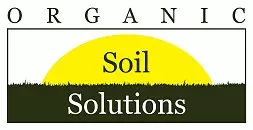Native Plants for Your Garden
I’ve always had an interest in the health of soil biology, the basis for our organic lawn care program. However, there is plenty of life above the ground that is being depleted and needs help too. Soil micro-organisms rely on organic matter for their sustenance.
I’m sure many, if not most, of our lawn care customers know a lot more about native plants than I do, but I do love lying on the back porch watching all the action at the bee balm and butterfly weed in front of me.
I imagine a bird flying over all these little suburban parcels, walled off from each other, looking for some snacks to bring home to the kids. In most cases, that would be caterpillars and many yards have very few.
Most plants from Asia and other places host very few herbivorous caterpillars. Native species support hundreds. The mighty oak is the most hospitable with 534 different kinds of caterpillars. More and different kinds of caterpillars mean a greater variety of butterflies and birds.
Of course, pesticides can make the yard an unwelcoming fortress, where there is little to eat and no bird dares to chirp. The caterpillars of most butterflies are not so many as to harm the plants they feed on.
Of course, not all non-native plants are bad. Many flowers and herbs, if chosen correctly, can offer great pollen and nectar for bees. Many people define native as any plant that interacts with the plants, bugs and birds around them. Some foreign plants have formed a relationship with the larger ecological community but most have not. And lawns need love, too. They can be a great place to walk and run while our winged and fuzzy friends go about their business around us.
We Can Help Plant Natives in Your Garden
Organic Soil Solutions would be happy to plant natives in your garden. Even a few plants that are friendly to birds, butterflies and bees can make a big difference. The Monarch butterfly needs milkweed to survive. Many schools are planting milkweed to help the poor guys. You could help, too. Native wildflowers are a great way to fill in the spaces between your existing plants or you can choose a particular area. All the activity will capture your interest a lot more than a non native ornamental sitting quietly in the sun.
Five Resources to Help You Choose Your Native Plants
Natalie DeNormandie of SegoDesign (http://www.segodesign.com/): Landscape Architecture in Lincoln, MA
Ginna Johnson of Esker Company (http://eskercompany.com/) – Email Ginna at gjohnson@eskercompany.com
Joanne Neale of Garden Mentor in Needham, MA (www.gardenmentor.net) can give a two-hour consultation for $175 to let you know the natives best for your site. Give Joanne a call at 781-444-4614.
ProjectNative (www.projectnative.org) has hundreds of native plants and seed mixes. Pick what you want from their wide selection or choose a few from their pollinator mix to get started. Pictures and information of all these plants are available on their web site. Types of native plants include: big bluestem, black eyed Susan, evening primrose, foxgloves beardtongue, great blue lobelia, monkey flower, ox-eye sunflower, partridge pea, purple coneflower, purple top, side oats grams, sundial lupine, wild bergamot, showy goldenrod.
The Xerces Society (www.xerces.org/), a nonprofit organization that protects wildlife through the conservation of invertebrates and their habitat, suggests the following:
-Grow a diverse range of flowering plants
-Use native species whenever possible
-Provide blooms from late winter to late fall
-Include host plants for caterpillars in your flower borders
-Provide nesting sites for bees such as bee blocks and bare ground
-Avoid using pesticides
Want More Information About Native Plants?
I got most of this information from a talk by Doug Tallamy and reading his famous book, “Bringing Nature Home”. He is a Delaware entomologist whose findings on the hosting abilities of native versus non-native plants are remarkable.
More information can be found at GrowNativeMass in Waltham or Garden in the Woods.
Organic Soil Solutions promotes the use of natives in the landscape. Please contact us with any questions. We’re happy to help!
Photo credits:
You kill all the caterpillars, then complain – Now Never Ends~ blog
Dennis the Menace cartoon – Buzzfeed
Bringing Nature Home – On the Wing blog
